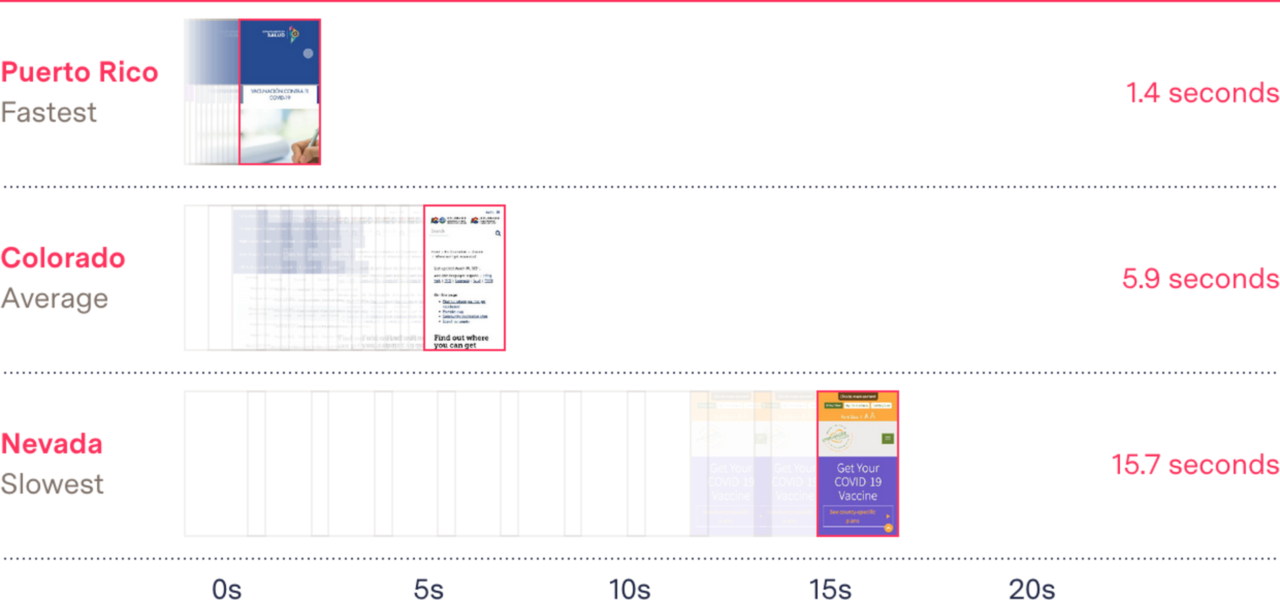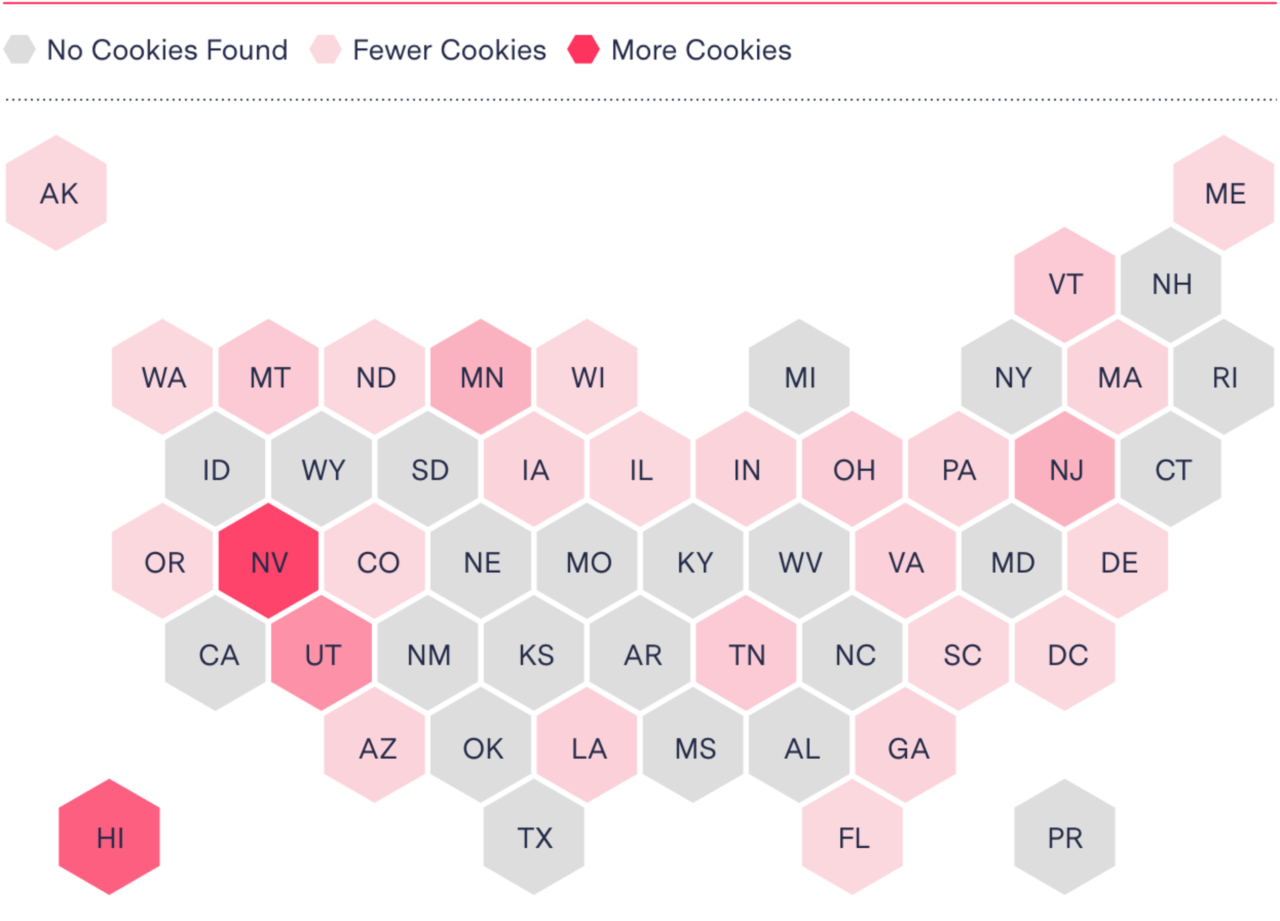Hello, friends,
Booking an appointment for a vaccine can be beyond frustrating. Often, there are dozens of websites to be navigated, each requiring reams of personal data, and while you type answers to all those questions, appointments disappear.
This digital maze is so hard to navigate that many good Samaritans have stepped in to try to help. There is the 12-year-old Westchester, N.Y., boy who has booked appointments for thousands of elderly New Yorkers. And the 45-year-old preschool director who set up a website to help domestic workers book appointments in Los Angeles. And the 26-year-old Chicago resident who set up a Facebook group to help schedule appointments for seniors.
But the fact that all these volunteers have had to step in feels more like evidence that the system is broken than a purely feel-good story about humanity.
And so The Markup investigative data journalist Jon Keegan and reporter Colin Lecher decided to take a stab at measuring the performance of our digital vaccine booking system in the U.S.
Jon and Colin examined the official vaccine information pages from all 50 states as well as Puerto Rico and Washington, D.C. Unfortunately they couldn’t measure the performance of the hundreds of private hospital and pharmacy websites that have their own booking systems. (But you can run your local sites through Blacklight to see how those sites are tracking you.)
First, they tested for speed, using Google’s Lighthouse performance testing tool. They found that there was huge variation among websites. Puerto Rico was super fast; Nevada was super slow.
How fast the contents of a page are visibly populated
Then they tested for accessibility, to measure how well each site was designed to serve users with disabilities. They found that most sites got relatively high scores in Lighthouse’s accessibility tests.
They knew there were likely some holes in these tests: Kaiser Health News has also analyzed state vaccine websites and found almost all of them created problems for blind users. Similarly, last year when The Markup investigative reporter Adrianne Jeffries tested state COVID-19 information sites, she found that 41 of 50 states’ virus information sites were difficult or unusable for visually impaired users.
Finally, Jon and Colin tested for privacy violations using our Blacklight privacy forensics tool, which conducts a real-time examination of websites for their use of various tracking techniques, including setting third-party cookies that allow users to be tracked across the internet.
On average, they found 2.8 ad trackers per site and 3.4 third-party cookies per site.
Nevada’s website, again, was an outlier. Its site, which is run through a partnership with a nonprofit organization, Immunize Nevada, contained 24 ad trackers and 45 third-party cookies, giving it a higher cookie count than the lowest 46 states combined.
Nevada’s, Utah’s, and Hawaii’s websites all have substantially more than the average number of cookies
Third-party cookies found on state vaccine websites
Marissa Medeiros, a spokesperson for Immunize Nevada, said that the website “uses digital advertising to educate and inform Nevadans about these vaccines, and we use Google Analytics to track the performance of these ads.”
Of course, these tests are just the tip of the iceberg. None of them measured usability, the complexity of each form, the number of pages and websites each user has to access—and most important, which users are left behind because of these digital mazes.
It’s worth remembering that things didn’t have to be this way. There are lots of mechanisms for distributing vital services to a population—many of which existed long before web forms became commonplace. To throw out just one idea: We could have existing infrastructure and set up vaccine distribution at existing polling places in each neighborhood.
But one thing is for sure: We have learned time and time again during this pandemic that our government’s digital systems are not ready for prime time—whether it was Florida’s constantly collapsing unemployment benefits website or the Pennsylvania vaccine website morass that prompted one doctor to tell Colin that the stress of trying to find vaccine appointments was making her patients “physically ill.”
President Joe Biden has promised that by May 1 the federal government will offer a unified vaccine finder website and a call center to help those who cannot navigate the online portals.
In the meantime, we at The Markup are committed to keeping you informed about whether technology is working for or against you. And we will keep testing and measuring systems large and small in order to bring you the facts.
As always, thanks for reading, and I hope you get your shot soon.
There will be no newsletter next week. I’ll be back in your inboxes on April 10.
Best,
Julia Angwin
Editor-in-Chief
The Markup
P.S. We wanted you to know that we are aware that our newsletter platform does not offer alternative text for images for visually impaired users. We have asked the platform to add this feature.

